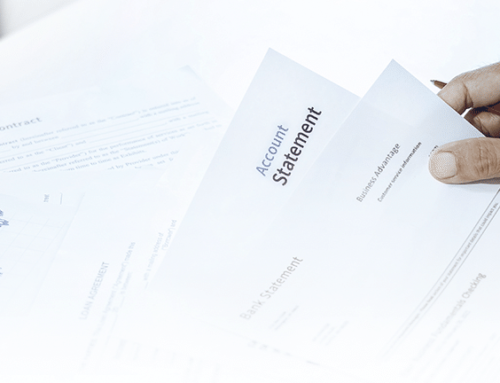Original story by abc news (abc.net.au/news/2019-10-10/australia-talks-how-miriam-got-out-of-65k-worth-of-debt/11567306)
Miriam was nearly $100,000 in debt, but strict budgeting turned her life around
Miriam* and her husband Joe* thought they were getting ahead in life.
They had a BMW. Two investment properties. Good jobs on decent pay.
But the reality was they had no savings. Instead, they owed about $100,000, not including the two mortgages.
They’re not alone. Australians ranked household debt as the country’s most pressing problem in the Australia Talks National Survey — along with cost of living and drug and alcohol abuse.
Miriam and Joe had three credit cards, two car loans and bills piling up.
“It was very stressful. It was stressful on my marriage — we were fighting all the time. Because we didn’t have any liquid cash to do anything, we didn’t have any cash to actually live,” Miriam said.
“It just sort of spiralled out of control. And we were still lying to ourselves thinking everything was fine, but it wasn’t.”
How do you compare?
The investment properties were not the money-maker they had hoped for.
Both were negatively geared, which meant the rent wasn’t covering the expenses and they had to top it up out of pocket.
“For one of the properties in particular we had a few issues with tenants, we had a few bad tenants and that also left their mark,” she said.
The last tenant wasn’t paying rent and caused damage to the property, which Miriam and Joe had to pay for on their credit card.
While they had landlord’s insurance, it took a month to kick in and didn’t cover all the damage.
Miriam and Joe’s debt breakdown
- Car loans: $50,000
- Credit cards: $27,000
- Unpaid bills (utilities, phone, council rates, body corporate): $23,000
- Total debt: $100,000
At the same time, they were both in insecure contract work.
“So every time my husband wouldn’t work — even if it was one week’s worth of work or two weeks’ worth of work — for us it was a huge thing,” Miriam said.
Then, the phone calls from debt collectors started.
“They just keep calling and calling at all hours — days, nights, it was just no rest. It started to get to the point where I didn’t want to answer the phone,” she said.
“It came to a point where we just thought, ‘what do we do? I don’t know, I can’t see myself out of this, it’s just too huge for me to deal with’.”
What is a financial counsellor?
- A qualified professional who provides information and advocacy to people in financial difficulty. It’s a free, independent and non-judgemental service.
- Financial counsellors are based in community organisations throughout Australia — contact the National Debt Helpline to find one near you.
Finally, Miriam reached out for help and went to speak to a financial counsellor.
“She was very distressed,” said Debbie Jacobs, a financial counsellor with Jewish Care Victoria.
“Like with a lot of clients the story slowly unfolded because there was also a lot of shame.”
Their first few sessions together weren’t easy.
“When she laid it all out on paper in the beginning it was quite traumatic,” said Miriam.
“Because I looked at that and thought ‘my god, what are we going to do?’.”
Back to basics with a budget
Ms Jacobs says with clients in debt, her first step is to get everything down on paper.
“I always start with a budget and check it with a bank statement because sometimes people can’t remember what they do spend on certain things,” she said.
“It’s a discussion tool as well.”
ASIC’s Moneysmart website has a detailed budget planner available for such purposes.
“We do a budget that looks at expenditure fortnightly, even on those items that aren’t fortnightly. Car registration might be once a year or once a quarter,” Ms Jacobs said.
“We encourage people to put that money aside so when it comes up, you’ve got that money there.”
After listing all their expenses, Ms Jacobs suggests cutting down on costs where possible.
“Sometimes people are spending money on things that perhaps they don’t need, they’re not really getting that much benefit out of it — they might have phone plans that are incredibly expensive when they could buy their phone outright and have a prepaid sim,” she said.
Miriam and her family cut down on their food bill — changing to cheaper supermarkets, no longer getting any takeaway, taking their lunch to work — cancelled their streaming services, changed phones to prepaid, renegotiated their insurance and other service providers and no longer have holidays.
They’ve followed the budget dollar for dollar and found all the little savings added up.
“And when you see some money at the end that you actually have aside you think ‘I can do this’,” Miriam said.
“That’s when I started getting relief, when I realised that this is not going to be for the rest of my life. This is just to get me out of the hole I’ve dug myself in.”
Asking for hardship provisions
The next step involved Ms Jacobs creating a plan to manage the debt.
She contacted all the organisations Miriam and Joe owed money to and asked for hardship provisions, which often means a new repayment arrangement.
“If you are in too much debt and it’s unaffordable then financial service providers have an obligation to come to a hardship arrangement,” Ms Jacobs said.
“You have to show a budget to show it’s unaffordable. Also they want to know how the situation is going to change for the positive.”
She started with the most urgent and largest debts — the two bank mortgages on the investment properties.
Miriam and Joe were renting their own home but had bought two one-bedroom apartments in the outer Melbourne suburbs as investments.
The rent wasn’t covering the mortgage repayments and they couldn’t afford the extra costs.
“We were calculating we were actually out of pocket $25,000 per year and we were not getting $25,000 back on tax. So, I think negatively gearing was not appropriate to what our income levels were,” Miriam said.
Ms Jacobs managed to convince the banks to give them a reprieve on paying interest for several months.
But they were also behind on body corporate fees and rates and the council was taking them to court.
“We went to the councils and body corporate — they can be harder because they don’t have hardship provisions. But they did agree to them paying off the arrears over time,” Ms Jacobs said.
The apartments had not increased in value, and one which was bought at the peak of the market was actually worth less.
Ms Jacobs suggested selling one or both of the properties.
But letting go of the properties was hard for Miriam and Joe. They decided to sell one and managed to break even.
“So to me, it was more like ‘what have I worked all this life for? I haven’t even got anything to show for it’,” Miriam said.
“I’m renting, I’ve been working all my life, those two investment properties were the only things that I could say ‘well at least I’ve got something!’.
The plan is for them to hold on to the other in the hope it goes up in value.
“At least this could be something for my kids. For them to buy something now could be a lot harder. I’m still holding on to it even though it costs me at least $1,000 a month out of my pocket to keep it,” Miriam said.
Improper backgrounds checks
Then Ms Jacobs started working on the two car loans, totalling around $50,000.
Both loans had a high interest rate at around 12 percent and were costing the family $1,200 a month.
“When I looked at the contract for her car loan I wondered why she got it in the first place, because it was actually when she had the mortgages and credit cards,” Ms Jacobs said.
“I actually went back to the finance provider and queried why she was given that loan because they really hadn’t looked at her financial situation properly.”
Ms Jacobs negotiated lower interest rates and lower repayments.
But it was difficult, and it required going to the Financial Services Ombudsman to force the lenders to agree.
The last big debt to tackle was the three credit cards.
Ms Jacobs negotiated with several financial services companies to shut the cards down and only pay the principal debt back with no more interest.
“We had one credit card at $12,000 and I was still paying it off at $185 a month, but there was no interest on it,” Miriam said.
“As we started breaking it down one by one slowly I saw a light at the end of the tunnel.”
The long road to recovery
The whole process of getting on top of their debt took about three years.
“It was probably a longer case because it was so complex and things unfolded. Circumstances change and there were more things to do,” Ms Jacobs said.
Each time Miriam or Joe changed jobs everything had to be reconsidered. In the three years they worked with Ms Jacobs, Joe had six job changes and Miriam two.
“In the beginning it was just small amounts — $50 here, $50 there,” Miriam said.
“But it started to grow as we knocked the small debts out. It’s really ramped up in the last year.”
Finally, they both secured permanent employment last year, which makes keeping to their budget easier.
“I’m rigid about this budget, I track every single thing I’m spending,” Miriam said.
“We don’t have cash so everything comes out of our account, so you can easily keep track of it. I know how much I spend on groceries, how much I spend on petrol, schooling and things.”
Slowly and steadily, the couple have paid off around $65,000 so far and hope to have paid off the last $35,000 of debt in two years’ time.
Some useful financial resources:
“Now I’ve got the knowledge to be able to be confident enough to pick up the phone and deal with the insurance companies, the banking institutions. I feel confident,” Miriam said.
“They’re actually willing to deal with you as long as you keep the communication flow going. Before, I would just avoid the calls. Now if they call I’ll actually pick it up.
“Because we stuck to those schedules, mine and my husband’s credit ratings are actually perfect. And we’re trying to stick to that so maybe one day we’ll actually be able to get a house or get something.
“So I feel that work has been the groundwork, and I think my future is very positive.”
And her advice to others in debt?
“What I would say is don’t try and keep up with other people. No one really cares at the end of the day.”

















Leave A Comment